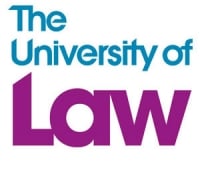Here at The University of Law we’ve been looking closely at the SRA’s plans as they’ve developed over the last few years, and now bring you this FAQ of what you need to know about the SQE proposals.
WHEN WILL THE SQE START?
The SRA have said that the SQE regime will not be introduced until September 2020 at the earliest. As this language suggests, it could be delayed – it’s a very significant change, so it’s important the SRA get the details right.
Even if it does come in for September 2020, it will not be a ‘big bang’ change, but the new and current systems will run alongside each other for some years. The SRA have just consulted on the transitional provisions (the rules that will apply as they move from one regime to another), and we’re waiting to see the outcome. However, they’re proposing that anyone who starts their legal education before the SQE is introduced will be allowed to follow their choice of the new or current process, as long as those using the current process complete it by 2031.
HOW WILL THE SQE CHANGE THE PROCESS TO BECOME A SOLICITOR?
To give you a clear understanding of how the SQE is going to change things, we’ll start with a quick overview of the current process which most students follow to become a qualified solicitor and then go through the new process that will be introduced with the SQE. (Different rules can apply, for instance if you are on a solicitor apprenticeship, or if you are already a qualified lawyer in a different jurisdiction).
THE CURRENT PROCESS
1. Qualifying law degree or a law conversion course
This is known as the academic stage of training, where you learn key areas of law. You complete it either by having a qualifying law degree (QLD), like our LLB, or you will need to complete a law conversion course, such as our GDL, before progressing on the LPC.
2. Legal Practice Course (LPC)
The LPC is known as the vocational stage of training, where you learn how to apply the law. You can either study just the minimum requirements of the LPC, or choose to include some extra content to earn a Masters qualification, such as our LPC LLM, or LPC MSc.
3. Training contract (or ‘period of recognised training)
After completing our LPC you need to work for 2 years as a trainee solicitor, commonly called a training contract.
4. Apply to the SRA to be admitted as a solicitor
5. Qualify as a solicitor
THE NEW PROCESS
1. Undergraduate degree or equivalent
All applicants to become a solicitor must either have an undergraduate degree, or experience equivalent to study at degree level (for example, by completing a degree level apprenticeship). Importantly, a qualifying law degree will no longer have any special meaning for the process, but it should help candidates prepare for some of the SQE assessments.
2. SQE Stage 1
All applicants will have to sit and pass SQE Stage 1, whatever degree or other qualifications they have already. SQE Stage 1 will mainly assess your legal knowledge through multiple-choice examinations. You must complete SQE Stage 1 before progressing to SQE Stage 2.
3. SQE Stage 2
Again, all applicants will have to sit these assessments, regardless of existing qualifications. SQE Stage 2 will assess your legal skills through practical examinations and assessments.
4. Qualifying work experience
You’ll need to complete a minimum of two years’ qualifying work experience (QWE), which can be with up to four different legal employers (and could include appropriate pro bono experience). You can do this during, before or after completing your SQE assessments, although we expect that in most cases candidates will have successfully completed at least SQE Stage 1 before starting their main period of QWE.
5. Apply to the SRA for qualification
The SRA will complete quality and suitability checks only at this stage of the process to determine whether you are eligible to become a solicitor. (Under the current process these checks are done before starting the training contract phase).
HOW DOES THE SQE DIFFER FROM THE QLD/GDL and LPC?
The QLD, GDL, and LPC, are all courses of study. Each has to include certain prescribed subjects, but the details of the courses and the assessments are set by the course provider.
The SQE is fundamentally different, as it is just a set of exams. These exams will be set by just one body, and all students will sit the same SQE exams no matter where or how they did their studies. Any degree or other qualifications/exam results will be irrelevant under the new regime, except to show you have a degree or equivalent in some subject – the SRA will only use your SQE result to check you have the knowledge and skills to become a solicitor.
Of course, you’ll still need to study law and legal practice to get ready for the SQE. The University of Law will have a full range of programmes to prepare you not just for the SQE, but to give you the wider skills you need to stand out and succeed in the workplace.
BUT WHAT IF I HAVE A LAW DEGREE? SURELY PASSING ALL THOSE UNIVERSITY LAW EXAMS WILL COUNT?
Unfortunately not. The SRA have decided not to allow any exemptions from the SQE (except for some lawyers who are already qualified in other jurisdictions). If you’ve done a law degree, you’ll have picked up at least some essential knowledge to help you prepare for the SQE but you will still have to sit all the SQE exams in addition to completing your degree. The University of Law’s LLB will include options and exercises to help prepare you as fully as possible for the SQE.
WHAT IF I’M PART WAY THROUGH MY TRAINING WHEN THE SQE STARTS?
Because it’s going to be a long transition, the SRA are proposing a period of eleven years from when the SQE starts for anyone who has already started their training to be able to qualify under the current process. So if the SQE starts in 2020 as planned, current students will have until at least 2031 to continue on either route to becoming a solicitor. The details aren’t finalised yet, so keep an eye out for any announcements, but you really don’t need to worry – as long as your law degree or GDL started before the SQE does, the SRA have said they will permit you a reasonable period to complete and qualify.
On the up-side, once the SQE does begin, anyone who wants to switch to that new route to qualification can do. So if you’ve started your legal studies before the SQE comes in, you can choose to sit the SQE and do QWE instead of a training contract. This means you can wait to see what the SQE looks like before making your mind up as to which route to follow – as long as you’ve started before the SQE is launched.
WHAT WILL THE SQE LOOK LIKE AND COVER?
At this stage, nobody knows. The SRA have not yet appointed an assessment provider, and there are no specimen exams or sample questions to look at. Even issues such as the number of exams, the topics they will cover, and when/how often the exams will take place, are still uncertain and subject to review.
However, the SRA have published some proposals, and we do expect that the SQE will have the following key features:
SQE Stage 1 is likely to have six multiple choice question exams (to test legal knowledge and practice) and one written exam (to test legal research and writing skills)
All the SQE Stage 1 exams will have to be taken in the same assessment window – and so cannot be spread out over several months or years.
All the SQE Stage 1 exams will have to be taken on a computer.
SQE Stage 2 is likely to consist of ten assessments in total (five different types of assessment, taken in two different practice contexts), and will test legal skills such as interviewing or legal drafting.
Candidates may have a choice of sitting all ten assessments at the same time, or in two groups of five.
Some SQE Stage 2 exams will be taken on a computer, and others will take the form of role plays.
IS THERE ANYTHING I NEED TO DO NOW BECAUSE OF THE PROPOSED SQE?
The good news is that there is nothing you need to do at this stage. Exactly when the SQE will be introduced, and what it will involve, are still uncertain. We do know that it will not be until 2020 at the earliest before it comes in, and that once it does anyone who starts their studies beforehand will be able to choose which route they follow.
What’s most important will be to keep yourself updated as things develop so you can make decisions when the time is right, and be knowledgeable and informed about the SRA’s proposals when talking to potential employers.
Follow us on Facebook, Twitter and Instagram to make sure you never miss any of our posts about this important topic.









